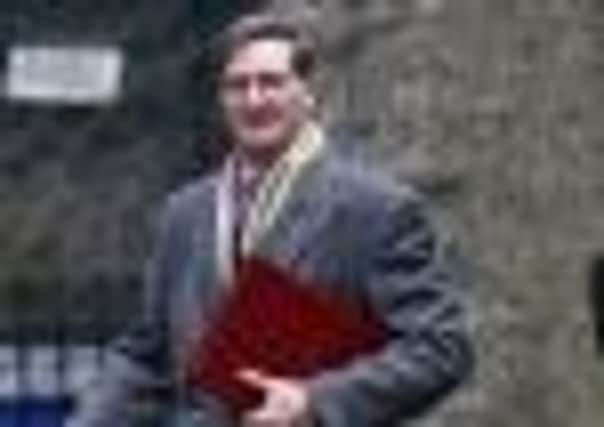Attorney General blocks release of devolution papers


Grieve confirmed today his belief that their release would not be in the public interest.
Instead, Grieve said he believed it would undermine the operation of government.
Advertisement
Hide AdAdvertisement
Hide AdA request had been made for publication of the minutes of the Cabinet Ministerial Committee of Devolution to Scotland and Wales and the English Regions, dating from 1997 and 1998.
Such a veto has only been used twice in the past, once relating to further devolution papers and once over a request for Cabinet minutes relating to Iraq.
Mr Grieve’s veto related to two specific requests for documents.
The first, received by the Cabinet Office on May 24 2010, asked for the “minutes of the 1997 Cabinet meeting on devolution”.
The request was rejected on June 18 2010, and the applicant requested an internal review of the decision on July 14 2010. Refusal was upheld the following month, on August 11 2010.
A request for further appeal was then made to the Information Commissioner’s Office (ICO) and on September 12 2011, having reviewed the decision, the Information Commissioners ordered the material be released.
A second request, made on June 7 2010, asked for “the minutes of the Cabinet Sub-Committee on Devolution for Scotland, Wales and the Regions”.
The Cabinet Office rejected the request on July 5 2010, and an appeal was made on July 21 2010. An internal review upheld the refusal on November 24 2010.
Advertisement
Hide AdAdvertisement
Hide AdThe request was referred to the ICO on November 29 2010 for further investigation. The Information Commissioner ruled on September 13 2011 that the information should be released.
In his statement, Mr Grieve said: “This is only the third time the power... has been exercised since the (Freedom of Information) Act came into force in 2005.
“In that time, central Government has released an enormous amount of information in response to FoI requests - including in October 2010 the minutes of the Cabinet discussion of the Westland affair.
“My decision to exercise the veto in this case was not taken lightly but in accordance with the Statement on Government Policy on the use of the executive override.
“In line with the policy, I have both assessed the balance of the public interest in disclosure and non-disclosure of these minutes and considered whether this case meets the criteria set out in the Statement of Government Policy for use of the veto.
“I consider the public interest falls in favour of non-disclosure and that disclosure would be damaging to the doctrine of collective responsibility and detrimental to the effective operation of Cabinet government.
“I have concluded, in light of the criteria set out in the Government’s policy, this constitutes an exceptional case and the exercise of the veto is warranted.”
A spokesman for the Information Commissioner’s Office said: “The Information Commissioner is aware that the Attorney-General has exercised the veto and regrets that the tribunal has, for the second time, been denied an opportunity to consider the issues as provided for in the Freedom of Information Act.
Advertisement
Hide AdAdvertisement
Hide Ad“The commissioner will study the Attorney-General’s statement of reasons to understand what ‘exceptional circumstances’ there might be to justify the use of the veto in this case.
“The commissioner will then make a special report to Parliament.
“The House of Commons Justice Committee is conducting a post-legislative review of the Act, which has been in operation for seven years.”
Former justice secretary Jack Straw exercised the veto on both previous occasions it has been used.
Most recently, in December 2010, Mr Straw blocked the release of Cabinet minutes on talks about devolution dating back to 1997.
He said at the time that collective Cabinet responsibility meant it was in the public interest for the papers to remain unreleased.
In February 2009, Mr Straw vetoed the release of Cabinet minutes relating to the Iraq War.